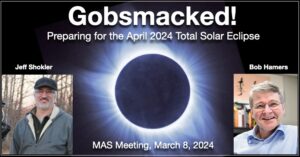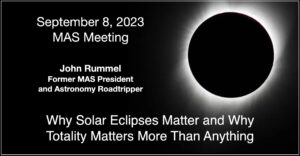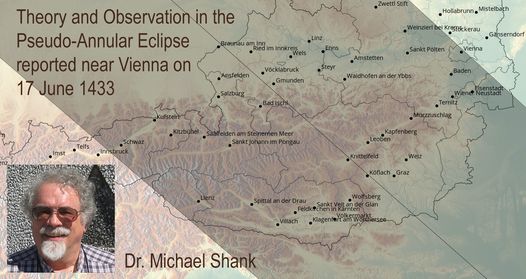The April 2024 Total Solar Eclipse: Prepare to be Gobsmacked!

Bob Hamers and Jeff Shokler will help you prepare for your total eclipse experience by sharing the insights, tips, and lessons learned from their own eclipse experiences. During the talk, they’ll help you consider your eclipse viewing and/or imaging goals, discuss the many ways one can enjoy experiencing a total solar eclipse (including the numerous phenomena to keep an eye out for), and share important safety considerations.
If photographing the eclipse is one of your goals, they’ll also talk about the kinds of imaging gear that is most appropriate for photographing total eclipses, and how to plan and prepare for taking pictures – particularly under the demanding, tight timelines total eclipses present imagers...
Read More

